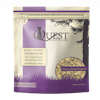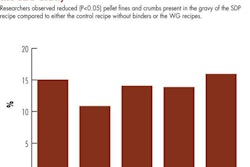Sustainability has become a buzz word in marketing and other circles; it is also a concept that is resonating more with the petfood and human food industries as we struggle to find sustainable sources of protein and other ingredients to feed the growing number of people in the world (not to mention their growing number of pets). And we often hear that many consumers seek brands and products that follow or support sustainable practices. But what exactly does that mean?
In its "Sustainability 2013" study, the Hartman Group, a market research and consulting firm based in Bellevue, Washington, USA, found that today's consumers view sustainability in terms of responsibility and values, "achieving the greater good and linking economic, social and environmental issues important to them," reported Laurie Demeritt, CEO of the Hartman Group, on Greenbiz.com. Consumers believe that doing the right thing in one area affects other areas. "Consumers say today that for something to be truly responsible in one way, it should not cause great detriment in another," she said.
That means the consumer "sustainability mindset," as Demeritt calls it, involves a greater awareness of products and practices than just eco-friendliness, including attributes thought to help the greater social and economic good. "The notion of responsibility as doing the right thing has particular resonance with consumers in that it symbolizes an underlying value that guides their views about sustainability," she wrote.
The Hartman Group's study identified four zones of responsibility -- personal, social, environmental and economic -- and showed that consumers move seamlessly among and between the zones in their discussions and views of products and practices. But what's important is that at the heart of the four zones lies a notion of feeling good about buying. "This feeling is much more profound than when consumers buy a product that is just good for themselves," Demeritt wrote. "Their purchase has allowed them to do a bit of good and express their moral values. It gives them a moment of happiness and self-worth in the middle of the most mundane activities."
I realize this all might read as rather warm and fuzzy ecobabble. But it does have implications for the petfood industry, because the study illustrated that consumers are seeking products, services and retail outlets that help create experiences "within which sustainability has profound connections at personal, social and global levels," Demeritt said. "What we find fascinating -- and of great value to manufacturers, retailers and service providers -- is that many core beliefs and aspirations surrounding sustainability behaviors represent personal journeys for consumers." In other words, consumers are expecting to find these same qualities reflected in the "stores, employees, brands and products they buy, interact with and use on an everyday basis."
Perhaps a more concrete aspect of sustainability lies in packaging, and the Hartman Group study addressed that, too, looking at what motivates purchases. For example, sustainable characteristics of packaging that consumers prefer have remained the same for at least five years now: recyclable, biodegradable, minimal, made of recycled content, refillable, reusable, compostable. The study also showed that for consumers at least moderately involved with sustainability, styrofoam and plastic packaging present the biggest concerns.
"Increasingly, sustainable packaging equates to healthfulness, which in turn equates with premium products," the Hartman Group says. Consumers view sustainable packaging options as "simple" measures that all manufacturers can take; "therefore, it is a minimum requirement for all products, even if the products themselves don't resonate as sustainable." Something to keep in mind as you review and design packaging for your petfood products.



















